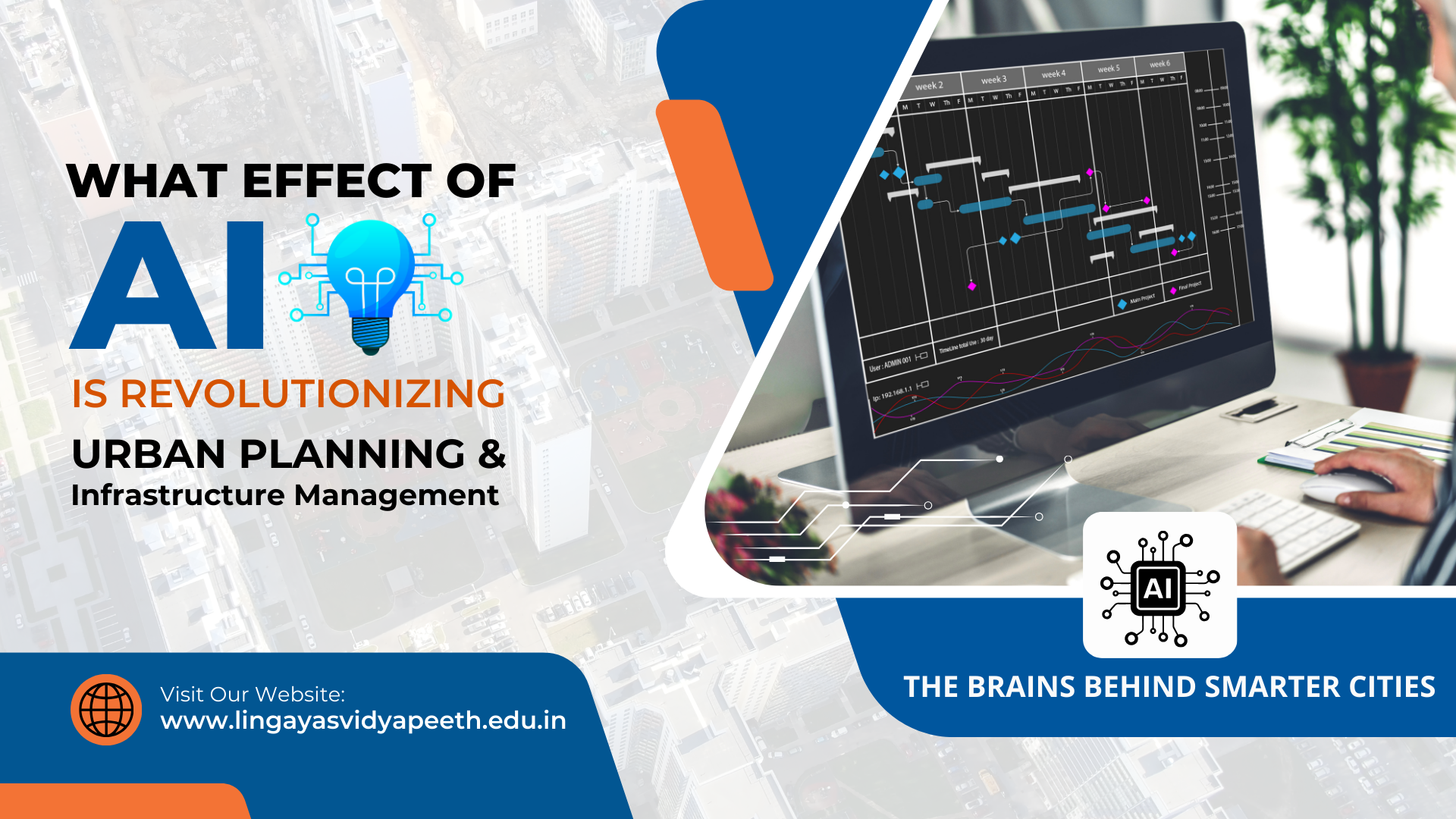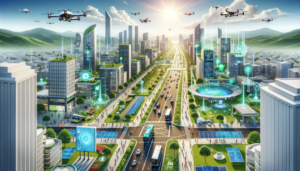Home » How AI is Revolutionizing Urban Planning and Infrastructure Management?

Imagine a city that anticipates your needs, seamlessly adapts to traffic flow, and optimizes energy consumption. This isn’t science fiction- it’s the future of urban living powered by Artificial Intelligence (AI).
Cities are complex ecosystems, and managing them efficiently is a constant challenge. AI is emerging as a powerful tool for urban planners and infrastructure managers, helping them create smarter, more sustainable, and livable cities.
AI acts like a digital brain for cities, analyzing vast amounts of data from sensors, cameras, and connected devices. This data can include:
By analyzing this data, AI can provide valuable insights for urban planning and infrastructure management, leading to several key benefits:

Several cities worldwide are already harnessing the power of AI for smarter urban planning:
While AI holds immense potential for creating smarter cities, there are challenges to consider:
The success of AI-powered smart cities hinges on collaboration:
Conclusion:
AI is not a replacement for urban planners and infrastructure managers; it’s a powerful tool to empower them. As AI technology continues to evolve, we can expect even more sophisticated solutions for smarter cities. The future of cities lies in a harmonious collaboration between human ingenuity and AI’s analytical power. By embracing AI responsibly, we can create cities that are not only efficient and sustainable but also vibrant, livable, and truly smart.
Choose Lingaya’s Vidyapeeth is Best Engineering Colleges Faridabad to pursue a B.Tech. in AIML for the best learning experience in Delhi NCR. Lingaya’s Vidyapeeth equips students with the knowledge, skills, and hands-on experience needed to excel in the rapidly evolving field of AI. With state-of-the-art facilities and a vibrant research community, students engage in innovative projects and real-world applications, preparing them for successful careers in AI-driven industries. Give your career a boost in the field of AI and enroll in Lingaya’s Vidyapeeth now!
From
Dr. Manisha Vashisht
Assistant. Professor
School of Engineering
Lingaya’s Vidyapeeth
Top B.Tech CSE Colleges in Faridabad
RECENT POSTS
CATEGORIES
TAGS
Agriculture Agriculture future AI Architecture artificial intelligence Bachelor of Commerce BA English BA Psychology BTech AIML BTech CSE BTech cybersecurity BTech Engineering Business management career Career-Specific Education career guide career option career scope Civil engineering commerce and management Computer Science Computer science engineering Data science degree education Engineering Engineering students English Literature english program Fashion Design Fashion design course Higher Education Journalism journalism and mass communication law Law career Machine Learning mathematics MBA MBA specialization Mechanical Engineering Pharmacy Psychology Research and Development students
LV only conducts physical/online verification of any document related to examination on the following email id:
It is important to note that the following email IDs and domains are fraudulent and do not belong to our university.